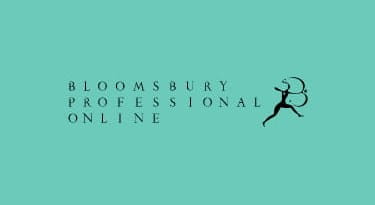“Confusing and time-consuming for small businesses” – that’s how Laura Beales ACA, co-founder and CEO of Tally Workspace, sums up the UK’s VAT system. Her knowledge of the VAT challenges facing SMEs is based on her current experiences as an entrepreneur, as well as previous finance jobs with startups and audit and advisory roles with KPMG.
Beales and her co-founder launched office rental platform Tally Workspace in 2020 because they realised that the COVID-19 pandemic was changing how companies used their workspace. “We wanted to make it easier for companies to find exactly what they wanted for shorter time periods,” she explains. Fast forward four years and Tally Workspace has grown to a team of 11 people. Today it supports the UK’s entrepreneurs by helping SMEs, startups and scaleups to find office space across the UK. It also enables people to book hot desks and meeting rooms on demand.
“Office space is normally the second biggest cost for most businesses we work for, after payroll,” Beales explains. “Companies appreciate that to get people to come into city centres, they need to provide a high-quality workspace that people want to go to.”
A complicated tax
Beales loves the “everyday challenges” of being an entrepreneur and “always having something different to do every day”. One challenge that she could do without, however, is VAT. “VAT is a complicated tax, even for accountants,” she says. “It’s expensive to get help with and that’s tough on small businesses. More could be done to make it easy for small businesses to look after VAT themselves without being afraid they’re going to get something wrong.”
For Tally Workspace, a big issue is having to create VAT invoices to support online transactions that automatically generate a receipt and having to ask its suppliers to do likewise. “There’s a lot of time wasted,” Beales says. “A lot of time is spent chasing for receipts and invoices and other documentation to support VAT claims.”

Another time-consuming problem is working out why suppliers have charged 0% VAT for certain items on their invoices. It might be because the goods or services are zero-rated or exempt, but it might be because the reverse charge applies. If suppliers are not clear on their invoices as to why they have not charged VAT, Tally Workspace must work this out for itself in order to complete its VAT return correctly.
Making VAT work better
Arguably the greatest VAT challenge for small businesses is the £90,000 turnover threshold at which they must register for the tax. “Plenty of businesses don’t go over that threshold,” Beales notes. “It’s not just because they have to add 20% onto their prices, it’s also the administrative cost of looking after the VAT. You’ve got to be very sure that you’re going to make a lot of money above the threshold to make it worth registering.”
Beales believes that the £90,000 threshold is holding back the UK’s economic growth by discouraging businesses from expansion. So she suggests two possible ways to address the problem. The first would be to require all businesses to register for VAT from the offset. Alternatively, the turnover threshold could be set significantly higher – perhaps at £250,000.
Getting advice from an accountant can cost £200 an hour, so it’s not financially viable to get advice on a single receipt or invoice
HMRC could also help to make VAT work better for small businesses, Beales argues, by providing more advice, both at the point businesses register for the tax and once they start filing returns. She thinks SMEs would benefit from an accessible, affordable system that answers their minor VAT queries – a system that could be run by HMRC itself on a chargeable basis. “Getting advice from an accountant can cost £200 an hour,” Beales says. “So, it’s not financially viable for a small company to try to get advice on a single receipt or invoice.”
Despite the challenges, there are some positives to the current VAT system, Beales acknowledges. She highlights the government’s Making Tax Digital strategy, which requires VAT-registered businesses to keep digital records and file their tax returns online. This, she says, has been a success.
Beales devotes half a day each quarter to checking Tally Workspace’s VAT returns, time that she could spend meeting clients or engaged in other business activities. Other leaders of small businesses are in a similar position – spending time on VAT that could be better used in other ways. “We need to remove the administrative burden of VAT,” she concludes, “so that people have time to invest in growth and making their businesses more productive and efficient.”
How to fix VAT
ICAEW explores the challenges and opportunities offered in reimagining VAT. Read about the history of VAT, the lessons that can be learned from outside the UK and the potential of digitalisation.

The Tax Faculty
ICAEW's Tax Faculty is recognised internationally as a leading authority and source of expertise on taxation. The faculty is the voice of tax for ICAEW, responsible for all submissions to the tax authorities. Join the Faculty for expert guidance and support enabling you to provide the best advice on tax to your clients or business.



